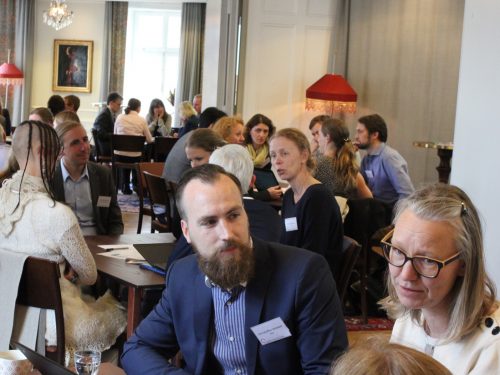Environmental footprint in Sweden – increased competence and communication
Background
Information and market pressure in combination with political instruments will in the long run lead to reduced environmental impact and resource use from production and consumption of goods and services, both nationally and globally. Demand for life-cycle based information on the sustainability performance of goods and services has increased significantly in recent years, both between business and the public sector and consumer information. In order to create a common arena, reduce the risk of market disruption, so-called greenwash, and to reduce the costs of calculations and communication of environmental performance, the European Commission’s initiative Product environmental footprint and Organization environmental footprint (PEF/OEF) is now on its way to becoming the EU common framework for calculating environmental footprints on the way to a single market for green products. The bioeconomy strategy from 2018, updates of existing instruments for EU product policy and the EU’s new circular economic action plan also use or refer to PEF/OEF. New and future directives, such as the Battery Directive, also refer to the EF (Environmental Footprint). The EU Commission hopes that the availability of information and comparability will lead to market pressure in the common market, but also to increased competitiveness for European products internationally.
Aim & objectives
The overall purpose of the project is a business community, government and a public sector in Sweden with an impact on and insight into Single Market for Green product work at EU level. The aim is also good preparedness, understanding and capacity of business, authorities and the public sector to handle future life cycle- eligibility requirements and expectations, both legal and market-based, that the implementation of PEF / OEF leads to. The long-term effect is actors in business, government and the public sector with the ability to reflect these eligibility requirements and expectations in their own innovation projects, strategies and objective, which leads to Swedish consumption and production in line with the EU’s work for a circular economy.
Information and market pressures in combination with political instruments will in the long run lead to reduced environmental impact and resource use from production and consumption of goods and services, both nationally and globally.
Outcomes
- the participants and other interested parties from business, government and the public sector in Sweden have good knowledge of and understanding of the Environmental footprint methodology and product policy instruments that use it from their own perspective
- at least three participants in the project participate in the TAB group and / or one or more of the industry-specific cluster groups for influence
- at least two project participants have tested (parts of) the Environmental footprint methodology in their own activities
- life cycle experts in the long run will find forms of collaboration that meet the coming needs of Swedish actors
- the participants have knowledge of planned methodological development work and of the policy process that connects or may link to the Environmental footprint.
Information about PEF
Product Environmental Footprint guide & Organisation Environmental Footprint guide (December 2021)
Latest news from the EU Commission
Environmental Footprint trainings
If you have technical questions related to the PEF and OEF methods, please write to [email protected].
If you have questions on the overall PEF process, please write to [email protected].

